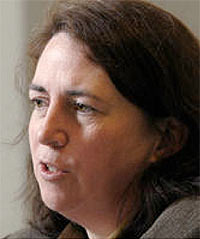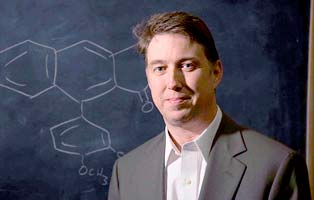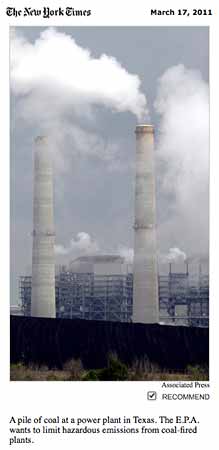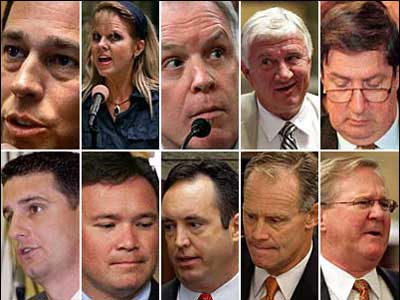Biblio
Terry Mutchler, executive director of the state’s Office of Open Records.
Jennifer Learn-Andes
Luzerne County Reporter
The public should have access to the inner workings of Luzerne County home rule subcommittees, say three experts on the state’s open meeting law.
Unwarranted closed-door meetings “fracture public trust,” said Terry Mutchler, executive director of the state’s Office of Open Records.
...“If they’ve opened the committee meetings to the public, it’s a natural follow that the subcommittee meetings be open as well,” Mutchler said, noting that her office has no legal jurisdiction over alleged violations of the Sunshine Act governing open meetings.
Melissa Melewsky, media law counsel with the Pennsylvania Newspaper Association, said the Sunshine Act applies to committees of an agency that render advice, which would include the subcommittees.
“I think the language of the law is pretty clear. I think members of the public who are seeking public access are very legitimate in doing so. I think they have a strong argument,” she said.
GEMS: Great Environmental Moments in Science |
||
|
||
|
||
|
Executive Message:
...As an agency, we are ready to face scientific challenges in 2011 that range from mountain top mining to hydraulic fracturing to endocrine disruption and more. But the reason it’s so important to invest in the kind of new thinking, methods, and approaches that Administrator Jackson has called for, is to ensure our ability to take on those challenges we can’t foresee. Innovative thinking and sustainable approaches will be out best tools to confront new environmental challenges as they arise.
Sincerely,
Paul T. Anastas
Assistant Administrator
U.S. EPA
Office of Research and Development
Hydraulic Fracturing Study Plan Review Panel
The Panel will review and provide independent expert advice on EPA’s draft Hydraulic Fracturing Study Plan that will investigate the potential public health and environmental protection research issues that may be associated with hydraulic fracturing.
It will be led by David A. Dzombak, professor of environmental engineering at Carnegie Mellon University.
Legere, Laura. "Peer-review panel for EPA fracking study includes six Pa. scientists." The Scranton Times-Tribune. Jan. 18, 2011.
A panel of geologists, toxicologists, engineers and doctors that will peer-review a high-profile Environmental Protection Agency study of hydraulic fracturing will include six scientists from Pennsylvania, more than any other state.
The panel will review the techniques and analysis the EPA uses to draft a study of the potential environmental and health impacts of hydraulic fracturing - the process used in natural gas exploration of injecting a high-pressure mix of chemically treated water and sand underground to break apart a rock formation and release the gas.
...In a memo announcing the new panel, the EPA found "no conflicts of interest or appearances of a lack of impartiality for the members of this panel."
See: Natural Gas Drillers Protest Nomination of Fracking Critics for EPA Review Panel
See also: Hydraulic Fracturing Study Plan
Determination Memo:
Posted 01/13/2011
Determination Memo for this Activity. (1/27/2011, PDF, 11 pp., 44,581 bytes)
Members:
| Dzombak, David A. | Chair | Carnegie Mellon University | Pittsburgh | PA |
| Alexeeff, George | California Environmental Protection Agency | Oakland | CA | |
| Ballestero, Tom | University of New Hampshire | Durham | NH | |
| Benjamin, Mark | University of Washington | Seattle | WA | |
| Boufadel, Michel | Temple University | Philadelphia | PA | |
| Boyer, Elizabeth | Pennsylvania State University | University Park | PA | |
| Burnett, David | Texas A&M University | College Station | TX | |
| Davis, Thomas L. | Colorado School of Mines | Golden | CO | |
| Dunn-Norman, Shari | Missouri University of Science and Technology | Rolla | MO | |
| Giesy, John P. | University of Saskatchewan | Saskatoon | Saskatchewan | |
| Griffiths, Jeffrey | Tufts University | Boston | MA | |
| Gschwend, Phillip | Massachusetts Institute of Technology | Cambridge | MA | |
| Harris, Cynthia M. | Florida A&M University | Tallahassee | FL | |
| Kim, Nancy K. | Health Research, Inc. | Troy | NY | |
| Lee, Cindy M. | Clemson University | Anderson | SC | |
| Patten, Duncan | Montana State University | Bozeman | MT | |
| Randtke, Stephen | University of Kansas | Lawrence | KS | |
| Reible, Danny | University of Texas | Austin | TX | |
| Schreppel, Connie | Mohawk Valley Water Authority | Utica | NY | |
| Thyne, Geoffery | University of Wyoming | Laramie | WY | |
| VanBriesen, Jeanne | Carnegie Mellon University | Pittsburgh | PA | |
| Vidic, Radisav | University of Pittsburgh | Pittsburgh | PA |
The showdown between House Republicans and the White House over climate change and environmental policies kicks off Wednesday with EPA chief Lisa Jackson as the star witness.
The Energy and Commerce Committee will hold a hearing on legislation floated last week by Chairman Fred Upton (R-Mich.), Rep. Ed Whitfield (R-Ky.) and Sen. Jim Inhofe (R-Okla.) to strip the Environmental Protection Agency of its authority to regulate greenhouse gases under the Clean Air Act.
Jackson last week blasted what she called “draconian measures” aimed at handcuffing her agency, and insisted that the White House would veto legislation to take away its regulatory authority.
“These efforts would halt EPA’s common-sense steps under the Clean Air Act to protect Americans from harmful air pollution that until now has not been regulated at all from any sources in this country,” she said.
According to the American Journalism Review, Politico is a Washington, D.C. based website and newspaper that focuses on Beltway political coverage, started by veteran Washington Post political reporters John Harris and Jim VandeHei started in January 2007.
See: Glenn Greenwald. May 30, 2008. "The right-wing Politico cesspool". Salon.
I once thought that Politico would be a pernicious new addition to our rotted media culture. Instead, it actually provides a valuable service by packing every destructive and corrupt journalistic attribute, in its most vivid form, into one single cesspool.
See: Republicans ask court to toss climate case
See: Smackdown: climate science vs. climate economics
See: EPA in the Crosshairs | Mixplex
See: Beware The Green Dragon! | Right Wing Watch
See: Energy & Commerce Committee Investigates Potential Impacts of Hydraulic Fracturing
EIP combines research, reporting, and media outreach to spotlight illegal pollution, expose political intimidation of enforcement staff, and encourage federal and state agencies to take enforcement action to stop these practices. EIP’s work has been cited in Congressional hearings and debates, in reports by the US General Accountability Office, and in frequent news articles.
...no other organization is so sharply focused on the vigilant enforcement of environmental laws.
See: Gasland - The Debate
Lively and informative rural American blog based in Austin Texas. This section contains articles on the Environment.
The Daily Yonder's special reports also bring you overviews of the big issues now facing small communities -- health, employment, broadband access, education, and economic development.
The Daily Yonder brings issues and images of the rural U.S. to the fore. We welcome readers from all over to see what's working, failing or never been tried in small communities.
Dee Davis is president and founder of the Center for Rural Strategies, which publishes the Daily Yonder. He is the former executive producer of Appalshop Films/Headwaters Television. Read more about the staff here.
See: Abrahm Lustgarten. "Natural Gas's Climate Benefits Questioned." Daily Yonder. Jan. 25, 2011.
It was thought natural gas easily beat coal when it came to slowing climate change. The EPA finds that thinking needs a revision.
Economic Implications of Marcellus Shale Natural Gas Development: Potential Impacts on Tourism, Agriculture, and Housing
A webinar hosted by Cornell University's Community and Regional Development Institute (CaRDI) on May 9, 2011 presented the work of a graduate student project in the Dept. of City and Regional Planning guided by Professor Susan Christopherson. Presenters: Vera Bartolome Diaz, Tom Knipe, Christopher Smith, Greg Waldman, Ethan Warsh, David West and Austin Zwick. (PDF version of the Powerpoint).
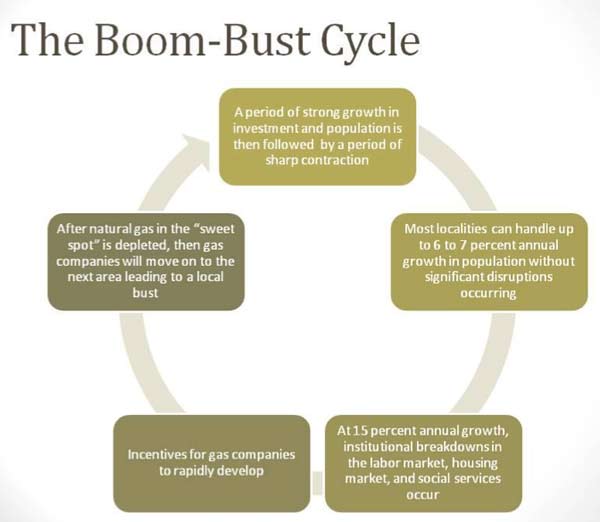
See: Christopherson to study economic impact of gas drilling in Marcellus Shale

Photo by Neil Zusman
Christopherson states that after fracking, there is no other industry. That will be all there is economically for the next ten to twenty years. Forget about agriculture, tourism, wine, tourism, and anything else besides energy. After a decade or two, or more, things might return to normal...
See: Catskill Citizens | More Damning Evidence About Fracking
Insights and Commentary on Environmental and Energy Issues Worldwide.
Greenberg Traurig, LLP is an international, multidisciplinary law firm with approximately 1800 attorneys and governmental affairs professionals in 32 locations across the United States and in Europe and Asia. The firm was selected as the 2007 USA Law Firm of the Year by Chambers and Partners.
See: David Mandelbaum. December 12, 2010. "Marcellus Shale Update: NY Moratorium Bill Vetoed, NY Executive Order, DRBC Draft Regs, and DRBC Hearing Curtailed."
See: Robert Charrow and Laura Klaus of GT Washington D.C. and David Mandelbaum of GT Philadelphia. Feb 4, 2011. "AEP v. Connecticut: Climate Change as a Public Nuisance".
WASHINGTON — The Environmental Protection Agency on Wednesday proposed the first national standard for emissions of mercury and other pollutants from coal-burning power plants, a rule that could lead to the early closing of a number of older plants and one that is certain to be challenged by the some utilities and Republicans in Congress...
Lisa P. Jackson, the agency’s administrator, said control of dozens of poisonous substances emitted by power plants was long overdue and would prevent thousands of deaths and tens of thousands of cases of disease a year.
Ms. Jackson pointedly included the head of the American Lung Association and two prominent doctors in her announcement to make the point that the regulations were designed to protect public health and not to penalize the utility industry.
Photograph: Jonathan Ernst/Reuters
Public health advocates said utilities had delayed the rules for more than two decades with court challenges and lobbying campaigns.
“If you think it’s expensive to put a scrubber on a smokestack, you should see how much it costs to treat a child over a lifetime with a birth defect,” said Dr. O. Marion Burton, president of the American Academy of Pediatrics, who stood with Ms. Jackson in announcing the rule.
Oddly, when the story first ran, it included an account of how Ms. Jackson invited a group of second graders from a nearby elementary school to the announcement. Earlier today, Mar. 17, it was edited out. Was it Broder and Rudolf, or the Times? Are children not newsworthy?
"She invited a group of second graders from a nearby elementary school to attend the rule’s unveiling at her agency."
I found a mention of it in a cached Google listing.
Why did the Times delete it? The article as it first appears will always be located here. (PDF). The Google cache will expire as soon as you read this. See for yourself, read between the lines.
(Neil Zusman, 2011-03-17).
--Editors: Flynn McRoberts, Susan Warren
This article examines the lawsuit against Exxon filed by Texas rancher Elizabeth Burns.
See: Rancho Los Malulos | A satirical view from the McGill Brothers Lease
Oil’s ‘Ugly Side’
“This isn’t something the states are proud to advertise,” said Philip Dellinger, chief of the groundwater section in the Austin, Texas, office of the Environmental Protection Agency. “It’s the ugly side of the oil and gas business.”
The EPA says it has no authority to force companies to address contamination on active fields and must defer to Texas regulators, who let oil companies determine if sites need cleanup.
...Pollution from decades-old wells and waste pits isn’t isolated to their ranch or Exxon. There are more than 100,000 old wells in Texas that haven’t been capped and thousands of defunct gas-processing plants, compressor stations and related equipment that have never been dismantled, according to the Texas Land and Minerals Owners Association, which represents 1,200 ranchers, farmers and individuals who own stakes in oil and gas fields.
Contamination Migrates
The contamination may have migrated from a defunct oilfield on the north end of town, where sludge and other waste from wells was dumped in open dirt pits for decades, said J.T. Garcia, president of the Duval County Conservation and Reclamation District. He doesn’t know who operated the field, which stopped pumping crude in the 1970s.
The Burns’s ranch, which covers an area equal to the size of Brooklyn, is just one example of the lingering environmental damage across swaths of south, west and east Texas from what were once regarded as acceptable oilfield practices, said Patterson, the commissioner with the Texas General Land Office, which oversees oil leases that help fund the state’s schools and universities.

Mrs. Burns | Photo by Sharon Wilson
“They’d just dig a pit and put the oil in it and then they’d haul it off later, or maybe they wouldn’t haul it off later, depending on the price of oil at the time,” said Patterson. “That was the norm, and nobody said anything about it.”
...Although lighter-weight hydrocarbons can degrade naturally in 40 or 50 years, the heavier molecules “are more persistent and pretty toxic,” said Gregory Miller, project manager at Icon Environmental Services Inc., a Port Allen, Louisiana-based company that cleans up old oilfields. “You have no idea how bad some of these sites are.”
Daunting Task
Patterson said cleaning up a tract as large as the Encinitos Ranch is impossible. Instead, the best solution may be to fence it off and monitor the pollution to ensure it doesn’t migrate underground to other ranches...
...“Exxon’s walked away from a lot of this stuff they built here, but the evil lurks,” said Burns, who had planned to raise organic vegetables when she and her husband moved to the ranch with their sons five years ago. “You’d hope your kids can do something with this land, but now it’s worthless.”
By Joel Kirkland of ClimateWire, New York Times.
The $31 billion Exxon-XTO all-stock deal still has to jump some regulatory hurdles. If the merger becomes real, Exxon will be the largest natural gas producer in the country, controlling large chunks of acreage in the most promising onshore gas fields in the United States.
Texas, Louisiana, Oklahoma, Arkansas and the Appalachian regions of Pennsylvania and New York are the epicenter of shale gas, coalbed methane and tight-sand gas formations.
See: Marching Band, Quail Hunt Helped Exxon’s Tillerson to XTO Deal - Bloomberg.com
By Jim Polson. Bloomberg Business Week. January 21, 2010.
Exxon Mobil Corp., XTO Energy Inc. and other shale-gas producers probably won’t face U.S. rules that would add costs of $100,000 a well, given comments at a Congressional hearing yesterday and the loss of a Senate seat by majority Democrats, FBR Capital Markets Corp. analysts said.
Irving, Texas-based Exxon’s $30 billion acquisition of XTO isn’t in jeopardy, Benjamin Salisbury and other FBR analysts wrote in a report to clients today. U.S. laws making shale development “illegal or commercially impracticable” would let Exxon terminate the deal without penalty, under the buyout agreement.
Democrats at the hearing praised the economic and environmental benefits of replacing fuels such as coal with cleaner-burning natural gas, indicating the party will emphasize jobs and the economy rather than restrictions on fracturing petroleum-bearing rock that might curb drilling by as much as 20 percent, the analysts wrote. Environmentalists said chemicals in fracturing fluid contaminate drinking water.
ExxonMobil. The Lamp. No. 4, 2009. p. 7-8.
Andrew Swiger, Exxon Senior V.P. has said,
"A key question about shale and other unconventional plays will be whether a company has the technology to turn them into profitable opportunities.
Swiger notes that technology advances ExxonMobil has perfected in producing unconventional natural gas from tight-sands formations in Colorado’s Piceance Basin should prove advantageous.
ExxonMobil‐XTO Merger:
Read preliminary transcripts of Rex Tillerson, CEO, giving testimony to the House Energy Committee.
ExxonMobil‐XTO Merger: Impact on U.S. Energy Markets Preliminary Transcript of Testimony, House of Representatives, Subcommittee on Energy and Environment, Committee on Energy and Commerce. Wednesday, January 20, 2010. 122 pages.
This merger heralds a fundamental long‐term shift in U.S. energy markets and one that deserves our close attention. Over the last decade, a small group of companies that most Americans have never heard of has been developing huge deposits of natural gas in deep shale formations across America."
-Edward J. Markey (D-MA), Chair of Subcommittee on Energy and the Environment.Tillerson testimony on p. 52.
Between now and October 1st, the state legislature will debate a new tax on natural gas extraction. But because of a loophole in the state's campaign finance laws, legislators will likely cast their votes before disclosing recent donations. That means the gas industry and environmental groups can flood Harrisburg with contributions without anyone knowing where the money is going.
That's why "It's Our Money” and Common Cause have teamed up to create a place where lawmakers can report contributions in real time: Marcellus Shale Money Watch.
Pennsylvania's environmental destruction is not limited to gas drilling. See: Coalfield Justice Blog, "What Could Be Worse?
Here is what could be worse: all the concern about shale gas has made the public unaware of other continuing problems. Big coal continues to destroy houses and streams. No one is demanding that the long overdue Act 54-required study of longwall mining be released. Big coal is continuing to do as it will with coal ash. With budget cuts in DEP, longwall enforcement, which has never been adequate, will be even worse.







